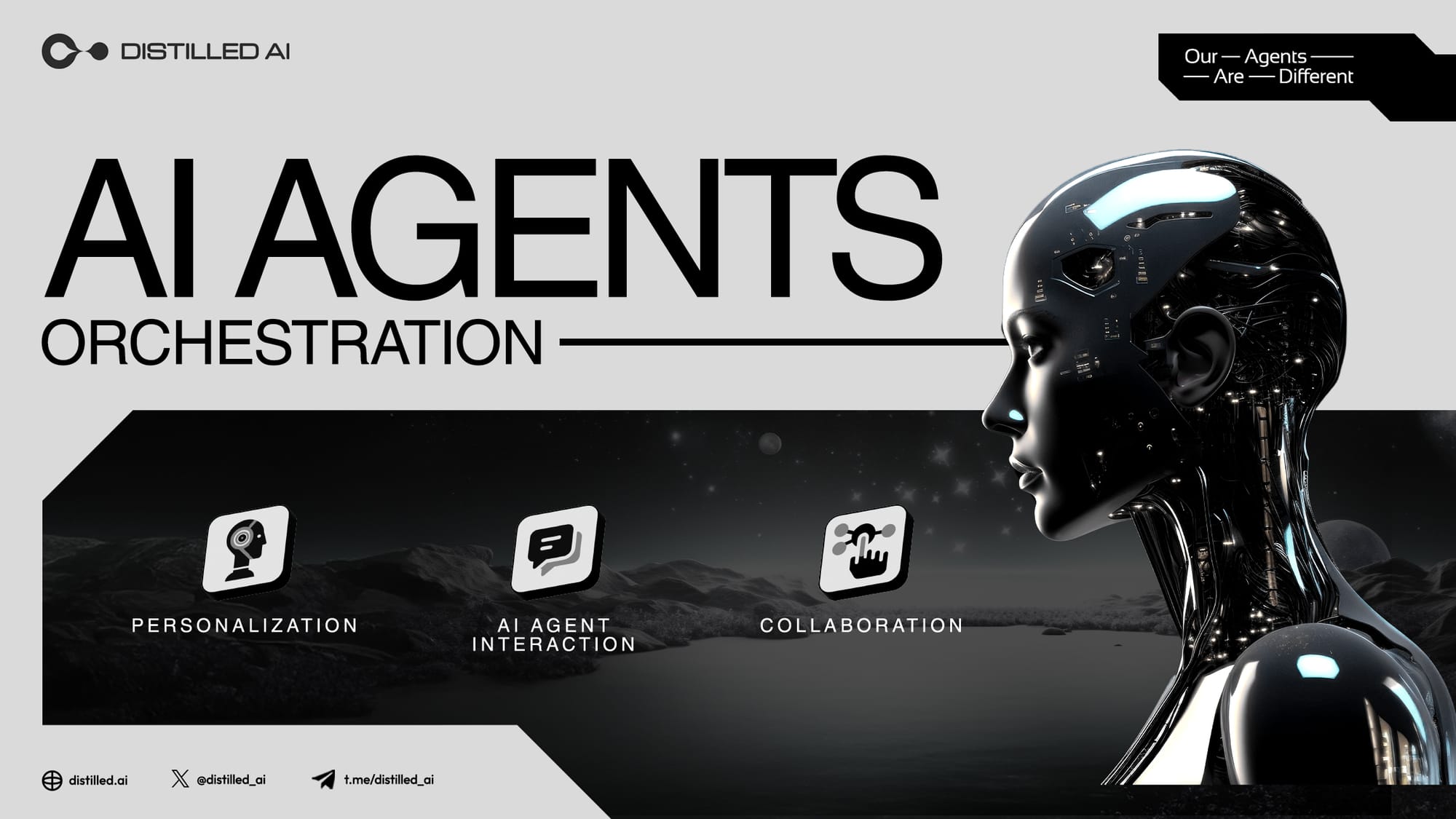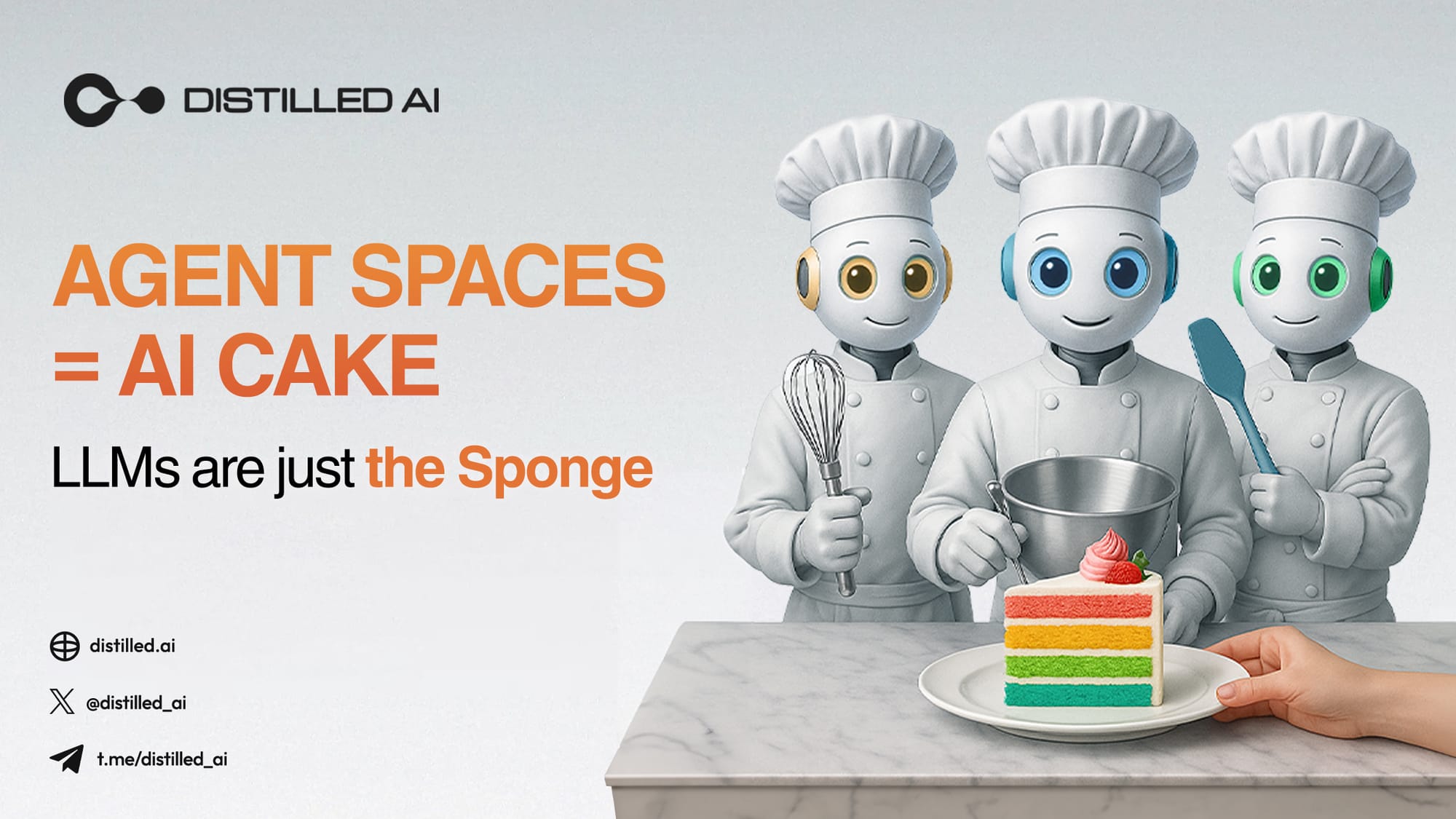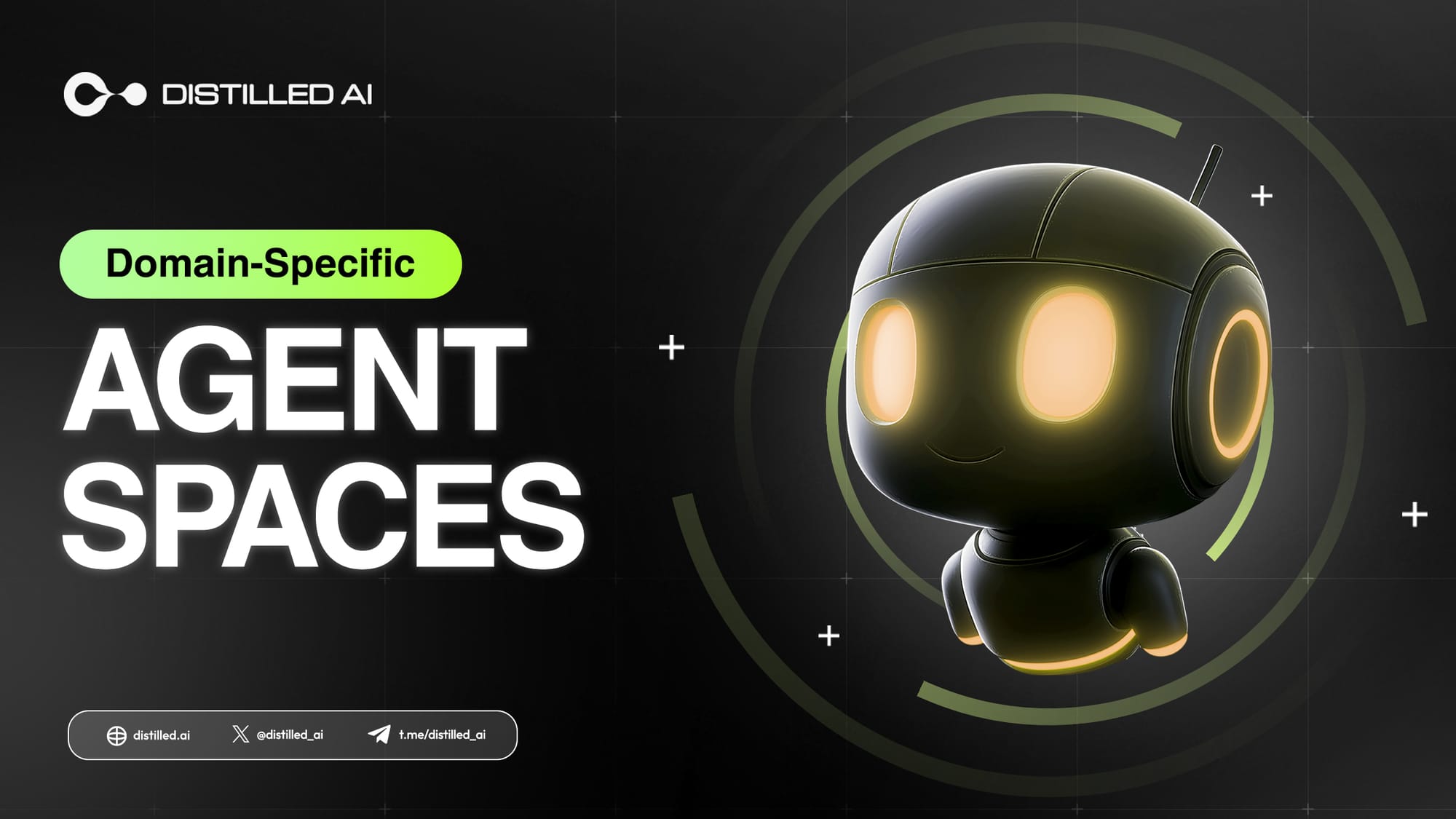- Our AI Agents
- About us
- Blog
- DeveloperComing soon
- Docs
- Enter MESH App
 Back
Back
Orchestration: Integration in the AI Age
APR 15, 2025
From enhancing decision-making to running decentralized apps, AI Agents are quietly changing Web3 and the real world. Driven by rapid technological advancements, AI Agents are unlocking several applications, such as AI orchestration - poised to deliver transformative potential shortly.Think of AI orchestration as being the conductor of an orchestra. Each AI agent has its specialized job, and by sharing data and working together, they collaborate & create something amazing—whether in music or business results. Instead of having one agent do everything, having a collaboration of agents focused on specific tasks is way more efficient and effective. Plus, it leads to more personalized and user-friendly experiences.Why AI Orchestration? AI agents are designed to be autonomous and focus on specific tasks, using private data. Instead of overloading one agent with too many responsibilities, having multiple agents handling their area is much better. This helps things get done faster and more accurately.Plus, orchestration allows for more personalization. With agents that are tailored to meet specific needs, users can create a much more customized experience for users. This not only makes things run smoother but also makes everything more relevant and user-friendly.
Some different types of AI Orchestration:
- Hierarchical Coordination: In this setup, agents are arranged in a hierarchy, with higher-level agents overseeing lower ones. While lower-level agents have some freedom, higher-level ones can step in to make final calls.
- Dynamic Workflow Management: This allows agents to change their roles based on real-time data and events, which makes the system more flexible and adaptable.
- Federated Orchestration: In this model, separate organizations or systems work together, with each handling its own AI agents, but following common protocols to share data and communicate.
- Decentralized Orchestration: There’s no “main” agent. Instead, each one operates independently, using local data and collaborating with others to reach the overall goal.
Challenges we have to face:
- Interoperability: Ensuring AI agents can communicate and work together despite differences in architecture, language, or platform can be challenging. Overcoming these barriers is essential for orchestrated AI systems to function smoothly.
- Data Integration: AI agents often work with diverse datasets, and integrating these sources effectively is critical for seamless collaboration. Ensuring agents have access to the right data at the right time remains a complex but necessary task for orchestration.
While much of the world is still catching up with the latest advancements in AI, staying ahead of these trends gives you the advantage to adapt quickly and set yourself apart from the competition. As AI Agents continue to evolve, the future of orchestration promises exciting possibilities.Soon, we might reach a point where we can simply sit back and watch a group of AI agents interact, discuss complex problems, and present multiple perspectives on an issue. These agents could collaborate autonomously, offering insights from different viewpoints, and helping us make more informed decisions without being directly involved in the process.With rapid advancements in technology, the possibilities are endless. AI orchestration could lead to systems that manage everything from education to healthcare and beyond, with agents collaborating in real-time to create dynamic, personalized experiences. These changes won’t just improve efficiencies; they’ll transform the way we work, learn, and interact with technology. The future holds a world where AI is not just a tool, but a proactive participant in our daily lives.On top of that, adding blockchain to AI orchestration can improve security and transparency. Blockchain would make sure data between AI systems is secure, traceable, and can’t be tampered with.


Thank you!
Read more articles

LLMs Are Just the Sponge: Building the Full AI Cake with Agent Spaces
From LLMs to AI systems is a long journey. Just like a sponge alone doesn't make a cake, LLMs alone can't create the rich, layered AI experiences we rely on today. This article explores how the AI Cake is formed—how modular systems, orchestrated workflows, and agent spaces bring everything together. And more importantly, what Distilled AI is aiming to build: the infrastructure that transforms these ingredients into a scalable, composable AI economy. The Secret Recipe When most people interact
MAY 14, 2025

One Size Fits None: Why Domain-Specific Agent Spaces Win
As Agent Spaces begin to define how humans and AI agents collaborate, a critical design choice emerges: why not build a single Agent Space that does everything? A universal platform might sound efficient, but in practice, specialization beats generalization when solving hard problems. This article makes the case for domain-specific Agent Spaces—where modularity, focus, and community expertise create compounding value that no "do-everything" platform can match. Domain Specialization: The Compet
MAY 14, 2025

 Share article
Share article